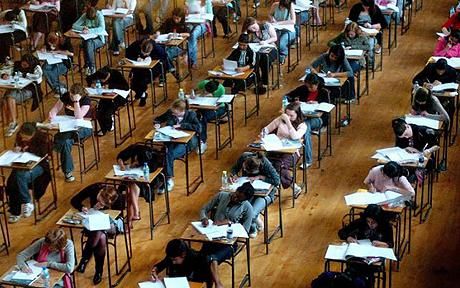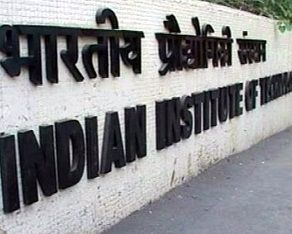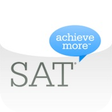Reimagining admissions to colleges in India
A better approach to CET

Earlier this week, Kapil Sibal, the Minister for Human Resource & Development, Government of India dropped a bomb. Coming 2013, the prestigious Joint Entrance Examination (JEE), the All India Engineering Entrance Examination (AIEEE) and various other state entrance examinations would be scrapped. Instead, there would be a Common Entrance Test to all government-funded colleges. Prospective aspirants heaved a sigh of relief. Those who had already cleared these examinations and got admission cried foul. After reservations, this is the issue which has caused the most uproar among the student community.

Let's have a look at both the systems, the old and the new. Then, I'll tell which one I feel is better or if we need a third, different system. And, finally, I'll discuss what I said in the heading i.e. a broader perspective to admission to colleges in India and not just engineering colleges.
Let's examine the status quo first. You have the IIT-JEE to get admission into the IITs, the AIEEE to get admission into the NITs and the various state entrance examinations to get admissions into colleges in a state (e.g. EAMCET, MHT-CET, WBJEE etc.). Plus, as if it is not enough, various private colleges conduct their own entrance examinations because they don't like these government-run exams. And, by the time you finish your twelfth class, a student writes at least a dozen entrance exams because you don't know in which one you'll get admission. Let me tell you, by the end of May, when you are done with this mountain of exams, you feel like you have won a war (let's not worry about results now 😉). Of course, coaching colleges have decoded every single exam and train you accordingly. It is more about reading the paper-setter's mind than using your intellectual facilities (the JEE is an exception here). All said and done, there is enormous pressure on the student.
Enter Kapil Sibal. Right from day 1 of him assuming office, he has stressed the need to de-pressurize the Indian student population. While his intentions are good, the plans are not so good. Doing away with Class 10 Board Exams was a big mistake. And now, the system he has proposed to replace the JEE and AIEEE is just jumping from the frying pan into the fire. He has proposed that there will be a new Common Entrance Test (CET) which will do away with this multitude of examinations and also, 40% weightage will be given to Class 12 board exams. While the CET part, which essentially consists of two examinations, is a good thing, the 40% weightage to board exams is a huge blunder of massive proportions. I'll give two reasons why giving 40% weightage is a folly of the government.
First, Kapil Sibal must realize that you can't arbitrarily give so much weightage to an examination which is not standardized at all. We have the ICSE, CBSE and a state board in every state. The syllabi of these various boards are not completely the same and the ease of scoring marks is also different. For example, consider two students of the same intelligence but one is in ICSE and the other is in a state board. Since scoring marks is so easy in state board, the student will most probably get in the range of 95-97%. But the student in ICSE who has the same intelligence will probably get around 92% because it is a known fact that scoring in ICSE is more difficult than state boards because the grading in ICSE is stricter and also, questions are more challenging in the sense they are not directly lifted from textbooks like is the case with many state boards of the country. Kapil Sibal can say all he wants about "One Country, One Board" but that won't happen anytime in the near future. You see, teachers of the state boards are not trained to effectively handle the challenges presented by ICSE and CBSE boards. So, Mr. Sibal should realize that arbitrarily assigning such a high number as 40% to boards doesn't make sense.
The other reason is what the government is always harping about, "pressure". The present system places way too much pressure on the student, says the government. So, how does assigning a weightage to board exams "reduce" pressure? Now, a student not only has to prepare for the CET, but there will be a mad rush for marks in the boards as well. There can only be one result of this. The student is fried at the end of twelve years of schooling. And that is foolishness.
I can see one thing in the government's approach here. While they are right in saying we should reduce the load on the students, they are trying way too much to ape the education system of the West. You can't just ape the system like that. India is a different country with different challenges, a different ethos and a different culture. Reimagining education is not copying the West. And, definitely not giving two-fifths weightage to boards for admission to engineering colleges. We should devise a new system, something which has the "India" stamp and not an "India (copied from abroad)" stamp. The demands and features of Indian education are different. Students from various regions study in different ways. All these things should be taken into account. Moreover, we should unify the admission process to all disciplines, engineering, medical, arts, humanities, law etc. Plus, the examination shouldn't be online (more on this towards the end) and should be conducted only once per year (not twice as it is being proposed).
Let me explain why I feel that the examination should be conducted just once a year and not twice. This is where the government is trying the US system of conducting the SAT several times a year. It works for them, but it won't for us. Allow me to elaborate.
If you see the US examinations, they are not of that high a level. They are designed in such a way that anyone from Grade 11 and Grade 12 or even younger can write them. In other words, they are not that advanced (yes, even the famed SAT Subject Tests). Hence, it is fully acceptable to write them several times a year. But that is not the case with India. Most of our entrance examinations, be it JEE, AIEEE, PMT or anything, they are based on the syllabus of eleventh and twelfth class and typically even go higher than that. So, if you are conducting an entrance examination in the middle of the year, when the syllabi aren't yet finished, it doesn't make sense at all. This is again just added pressure on the student, as coaching classes will now try to finish portions before the mid-year examination so that a student can again attempt it at the end of the year. Sorry, Mr. Sibal, this is a perfect recipe for pressure.
The other aspect which I think is a step backwards is making the exam online from 2014. Online exams fail on standardization which is providing a common paper to all. Each slot attempts a different paper and never is the standard of the paper same from slot to slot. Some slots have it easy and some have it tough. It is playing with the lives of lakhs of students across the country. Not. Fair. At. All.

So, how do we re-imagine education to handle the admission of lakhs of applicants to professional colleges every year? Firstly, we do away with the concept of giving weightage to boards. More prestigious colleges can say that student should score above a basic cut-off in boards. That's all. No business of giving weightage. Then, we adapt this system of a common entrance test to Indian conditions and for all disciplines. It should consist of two papers, the aptitude test and a scholastic test. Why do I say that an aptitude test is required for all disciplines? I say it because aptitude is something which spans all disciplines. It is a way of measuring your mental facilities irrespective of the branch of study. It is not all-encompassing but gives a basic idea of things.
Secondly, you have the scholastic test. The scholastic test is not a test common for everybody. It varies from discipline to discipline. Engineering students will have a different test; medical will have a different test and so on. All of them need not be held on the same day. Each subject can be on a different day, and it can be spread throughout the months of April and May. However, that is more of a logistical issue. You see, this doesn't drastically change anything. It is just streamlining the system and making it more manageable by removing tons of exams.
This is what I feel. I am open to what you say and what you think. Spell them out in the comments section below.
Cheers!!
